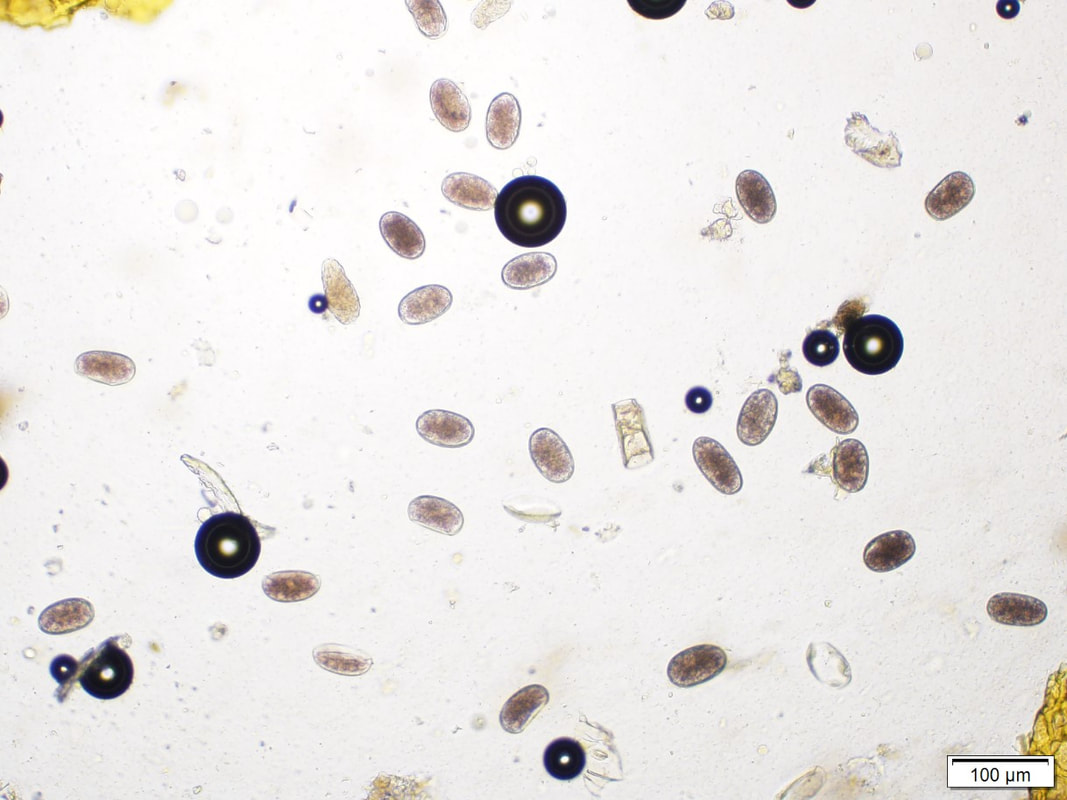Hooked on youAn adult female 3-year-old greyhound presented to a veterinarian in Illinois for persistent hookworm infection. She had been dewormed monthly with Pyrantel, Febantel, and transdermal Moxidectin for the past 3 months. A fecal sample was collected and a quantitative fecal egg count was performed using a modified McMaster test. The following eggs were found and counted at 850 eggs per gram (Image 1). Image 1: Eggs found on fecal examination (10x objective). Multi-drug resistant Ancylostoma caninum is a growing concern and commonly reported in retired racing greyhounds although the issue has also been identified in other breeds of dogs. To confirm multi-drug resistance, a fecal egg count reduction test (FECRT) is performed by collecting samples immediately prior to treatment and again 14 days following treatment. If hookworms are susceptible to the anthelmintic used, a FECRT should show a reduction of >95%. Because this dog has already been dewormed with all three anthelmintic classes, resistance is likely and off-label use of Emodepside can be considered following all appropriate safety and regulatory recommendations (see reference). A FECRT should be performed to confirm efficacy. In addition, centrifugal fecal floats – which are more sensitive than modified McMaster test – should be performed monthly for 3 months to confirm the dog does not become reinfected. During this time, it is important to maintain strict fecal clean-up and avoid dog parks to minimize sources of reinfection until no eggs are consistently seen on fecal analysis. There are 4 routes of transmission for hookworms in dogs: ingestion of infective L3 larvae, direct penetration of larvae percutaneously, transmammary transmission from mother to pups, and ingestion of paratenic hosts containing the infective L3. An event that can be confused with persistent hookworm infection is "larval leak", when encysted larvae migrate from tissues and colonize the small intestine and becoming patent. Due to this migration, fecal egg counts 14 days after treatment are important. Earlier fecal egg counts may reflect egg suppression following treatment but not true efficacy, and if eggs are present in the feces 21 days or more after treatment, reinfection from the environment or via larval leak is suggested rather than resistance. |
Archives
July 2024
Have feedback on the cases or a special case you would like to share? Please email us ([email protected]). We will appropriately credit all submittors for any cases and photos provided.
|

